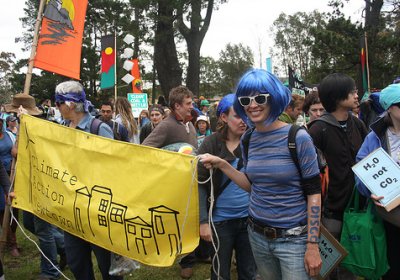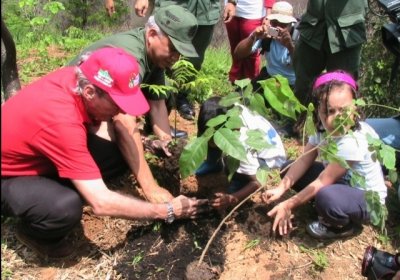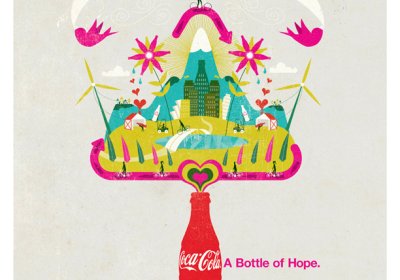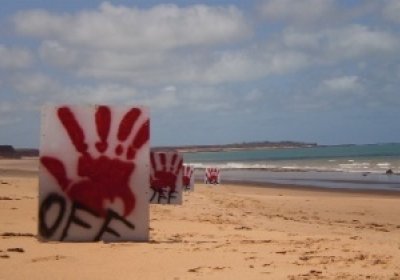Barangaroo is one of the last waterfront development sites in the City of Sydney. Its controversial redevelopment is starting a brushfire of protests because of the way it is being handled.
Once the heart of the docklands, was the birthplace of the bubonic plague in the early 20th century Barangaroo, which led to the takeover of much of the area and its wharves by the government-appointed Sydney Harbour Trust.
Environment
One of Australia’s biggest carbon emitters, Bayswater coal-fired power station in the Hunter Valley of NSW, will be the target of this year’s Camp for Climate Action.
Over December 1-5, the camp will bring people from around the country to a site near Bayswater, and will culminate in a mass protest against the proposed expansion of the power station.
Independent Andrew Wilkie won the Tasmanian seat of Denison at the recent federal elections. Previously, the seat had been held by Duncan Kerr for 23 years and was considered a safe Labor seat.
Wilkie came to prominence in 2003 when he resigned from his job at the Office of National Assessments in public protest against the then Liberal/National Coalition government's decision to invade Iraq. The invasion was based on the claim Iraq had weapons of mass destruction, a claim that later proved false.
A huge transformation of agriculture is taking place in Venezuela, a transformation that has lessons for every other country in the world. I had the opportunity in July to visit the country and see the changes that are taking place first hand.
Venezuela’s Law of the Land and Agrarian Development, the Law of Food Sovereignty and Security, and the Law of Integrated Agricultural Health set out the agenda.
The scientific community has never been more united in its conviction that climate change is well on the way to rendering planet Earth a vastly less hospitable place for most species, including our own. Yet doubt about the gravity of the problem is, paradoxically, on the rise.
Recent polls in the US, Britain and Canada reveal that fewer people take the threat of climate change seriously than five years ago.
On September 2, Western Australian Premier Colin Barnett began the takeover of land at James Price Point in the Kimberley so the company Woodside can build a gas-processing hub.
Barnett claims this is necessary, after two years of negotiating with the local Aboriginal community and the Kimberley Land Council (KLC). He said any further delays in the project will lose $30 billion after the $15 billion taxpayers have already spent.
“An oil platform explosion on September 2 in the Gulf of Mexico forced the crew to jump into the sea and threatened further damage to waters still recovering from the BP disaster”, AFP said that day.
The explosion on the platform, owned by Houston-based Mariner Energy, comes in the aftermath of the BP-owned Deepwater Horizon rig explosion in the gulf in April, which killed 11 workers. Bloomberg.com said on August 20 that 4.9 million barrels of oil escaped from the leaking well.
The Gulf of Mexico is still threatened with an ecological catastrophe, but the US government and British Petroleum (BP) are trying to cover up the scale of BP’s Macondo oil well disaster.
About 4.9 million barrels of oil escaped into the sea after the Deepwater Horizon rig exploded on April 20, killing 11 workers. BP capped the well on July 15, but work on the relief well to permanently plug the spill is expected to be delayed until early September, Bloomberg.com said on August 20.
Dick Smith’s Population Puzzle, a documentary that aired on ABC1 on August 12, made no modest claims. It went for the direct, hard sell. Its message: “Cutting immigration to Australia is a great product, and you should buy it.”
It said a smaller Australia would not solve just one or two social problems, but more than a dozen.
Safe Climate Perth has called a strategy meeting to plan a grassroots campaign against the new coal-fired power stations approved by the state Liberal government.
The campaign will also take up other proposed developments such as a suggested new coal mine at Margaret River, which has already sparked a dynamic community campaign.
Safe Climate campaigner Kamala Emanuel told Green Left Weekly: “We are planning a campaign that can win.
“The first step to getting to a safe climate future is to stop the increase in emissions of greenhouse pollution from new coal power stations.
In Australia, the question of environmental protection has increasingly been linked to the need to reduce or contain the nation’s population level size. This is often tied to the argument that the high level of consumption in First World countries is unsustainable.
“Businesses like making profits”, said Labor leader Julia Gillard on ABC’s Q&A on August 9. She was explaining why Labor opposed the Coalition’s proposal to raise the company tax rate by 1.5%. “If they’ve got to pay more tax and that’s going to cut into their profits, then they’ll think of a way of adding a bit more profit.
“What’s the best way of adding a bit more profit in? They put up prices.
“It, you know, just stands to common sense reason, doesn’t it?”
The Greens lead NSW senate candidate Lee Rhiannon agrees.
- Previous page
- Page 279
- Next page









